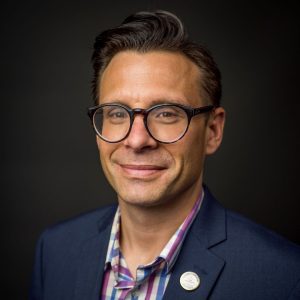Online education is not simply watching a video and church shouldn’t be either. Our members need engagement with biblical content and interaction with the church leadership, but they also need one another. The third component of our online education framework, “The Community of Inquiry,” is connecting members to other members, neighbors, friends, and the lost.
Creating community among the members requires modeling community for the members, which we considered in the last post as leaders engage with members. As your leadership team makes connection points with church members, they can strategically facilitate exponential community growth throughout the membership and beyond by suggesting some of these ideas:
Content Discussions: As you prepare and share content for your church each week, consider adding some questions for discussion. Ask your members to watch in small groups (ie. watch parties), call another member, or comment on social media posts about their responses to those questions. The goal is to get them talking to one another about the content shared. This guided connection facilitates community with biblical substance.
Prayer Sharing: A prayer app like Echo or a simple group text can be a wonderful way to share prayer requests and let members pray for one another. You can also encourage outreach by telling members to pray for neighbors, friends, and family outside of the immediate church body.
Meet Specific Needs: As your leadership connects and members connect, you will begin to learn of the needs and concerns of individuals in your church and community. Communicate those specific needs to the right people and find ways to have your members meet those needs – maybe childcare, grocery shopping, walking the dog, a card, or a call.
Encourage Giving: As you facilitate all of these different dynamic community engagements, share with members how their giving makes those possible. Further, their giving supports not just a church building, but the mission of the church which isn’t on hold in this pandemic. In fact, the mission is as vital as ever as so many people around us are in need physically and spiritually. As they give, they partake in the vital work of the church even in the midst of social distancing. Set up online giving or send pre-addressed envelopes to members with a note about the importance of giving for the mission in this time.
Use Their Gifts: Your members didn’t lose their ability to serve the church now that church is online. Find ways to have members use their gifts to foster more community and meet needs in and outside of the church. Equip the saints for remote ministry wherever they are located.
As you work with your team and members to transition to online education, we hope that the “Community of Inquiry” framework – connecting members to content, leaders, and each other – will create a much needed opportunity for your church to grow and reach the lost even in the midst of crisis.
Read More

Hope in Suffering
Gateway student Matt Bodden is an evangelist who is ready to answer the question of suffering with the gospel.

The Gateway Journal of Theology Inaugural Issue
Read all new articles in the inaugural issue of The Gateway Journal of Theology.
Listen
Prophets | Daniel Part 2
Now with the historical portion of Daniel done, Dr. Wegner takes us through the visions of beasts and years. All these figures intending to show us something. What does it all tell us about God?

Theology and Missiology with Dr. Peter Lillback
Rev. Dr. Peter Lillback, president of Westminster Theological Seminary, PA, and founder of The Providence Forum, joins Dr. Hopkins to chat about the inclusion of young children during the main services in church, the religion and theology of George Washington, and the

Watch

Jonathan Edwards and the Asbury Revival
Chris Chun and Chris Woznicki discuss the signs of true revival, signs of the work of the Holy Spirit, and why it is important to critically assess the characteristics of revival in a spirit of charity.

Jonathan Edwards and the Baptists | Douglas Sweeney, Nathan Finn and Chris Chun
Dr. Douglas Sweeney and Dr. Nathan Finn joined Dr. Chris Chun for a panel discussion on Jonathan Edwards, recorded live at the SBC Annual Meeting in Anaheim.




